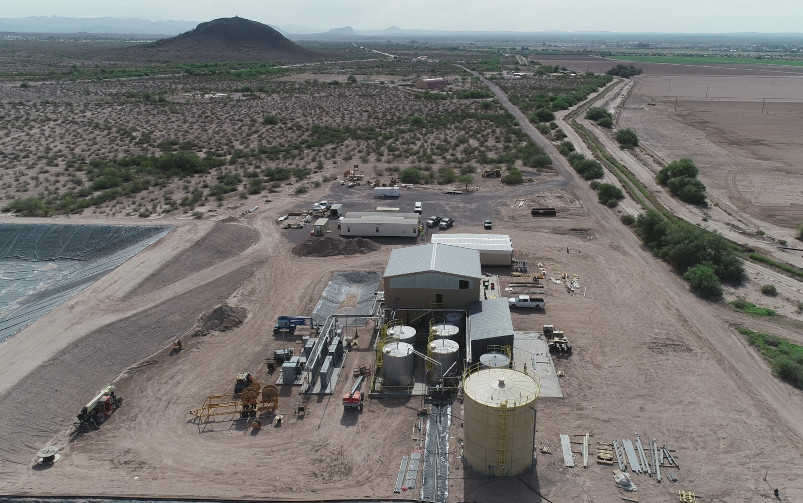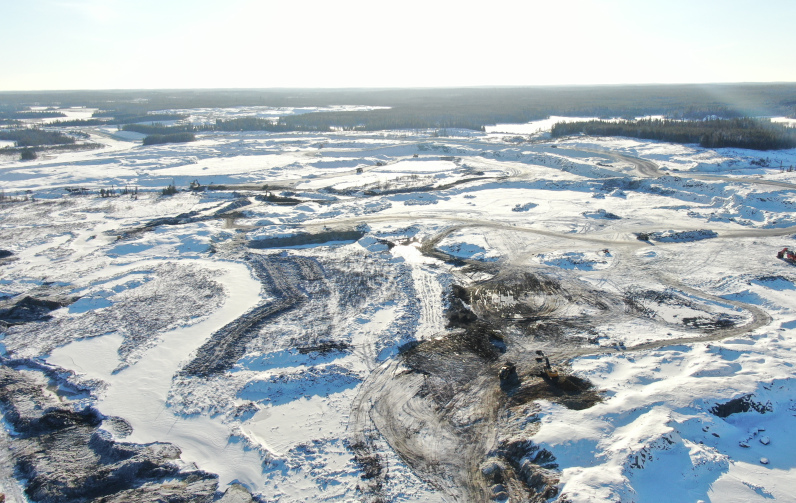MMG has warned that it may suspend production at its Las Bambas mine once again as a new protestor roadblock threatens operations. Courtesy of MMG.
Welcome back to your weekly mining news recap, where we catch you up on some of the news you may have missed. This week’s headlines include MMG possibly halting production at Las Bambas again, British Columbia rejecting Pacific Booker Minerals' proposal for an open-pit mine and a new study arguing that carbon taxation policies financially benefit the mining industry.
After years of maintenance, Cameco will restart uranium production at Key Lake and McArthur River and hopes to produce up to five million pounds of uranium in 2022. The company will give its Cigar Lake facility a break and reduce production to 25 per cent below its licensed capacity, or 13.5 million pounds per year. CEO Tim Gitzel said the company is maintaining its supply discipline indefinitely, despite forecasts of higher uranium demand.
Skeena Resources has responded to British Columbia's Chief Gold Commissioner’s decision concerning the ownership of the minerals present in the tailings at the Albino Lake storage facility, as reported by Canadian Mining Journal. Last August, Richard Mills, an individual who holds a mineral claim for the land under Skeena’s facility, applied to the commissioner, who then determined Mills has ownership. Skeena believes this decision is in error and will “utilize all legal avenues” to resolve the situation.
MMG has again warned that it may halt production at the Las Bambas copper mine in Peru by Feb. 20, as reported by Mining.com. Residents of the Chumbivilcas province have set up a new road blockade, demanding jobs, financial compensation and economic contributions from MMG. Residents have been protesting MMG for months, arguing that the company does not benefit the community.
Decarbonization and environmental and social issues are at the top of the list of EY’s annual 10 key risks to the mining industry report, as reported by Mining Global. Building a decarbonization strategy has become a high priority for stakeholders. Miners are facing more pressure to achieve net-zero and address ESG issues such as water management and biodiversity.
The mining industry relies heavily on fossil fuels and companies are looking at alternatives to combat climate change. Focusing on decarbonization, electrification, wind and solar power, and exploring old renewable-energy technologies such as hydrogen or nuclear power will lead to reduced global emissions.
After drilling resulted in high-grade assays, Agnico Eagle Mines said it will be expanding its Detour Lake gold mine, as reported the Canadian Mining Journal. Some of the highlights from the drilling included 17.4 metres grading 30.89 grams per tonne and three metres at 142.66 grams per tonne. On Feb. 8, Kirkland Lake Gold and Agnico Eagle Mines also completed a $13.4 billion merger.
British Columbia rejected Pacific Booker Minerals’ second proposal for an open-pit copper, gold and molybdenum mine as it would disrupt the local salmon habitat, as reported by The Narwhal. According to those involved with the project, the Morrison mine should not have been considered at all. This case has raised concerns that B.C.’s guidelines for suitable mining locations are unclear, which has led to years of lost time, energy and resources for Pacific Booker.
Rio Tinto will maintain its title as the world’s largest iron ore producer for another quarter, as reported by Bloomberg News. Though Vale SA was expected to overtake Rio Tinto, heavy rains restricting Vale’s Brazilian operations led to the company reporting 82.5 million metric tonnes of iron ore for the quarter, compared to Rio Tinto’s 84.1 million tonnes.
According to a study by the University of British Columbia’s mining institute, carbon taxation policies are a win for the mining industry, reported Mining.com. Researchers suggest that while taxes on carbon emissions will increase the cost of mining metals, the hike will be small in relation to the increased value of the commodity due to the shift towards cleaner energy.
A workplace-related accident at Kirkland Lake Gold’s Taylor mine resulted in the death of a Major Drilling employee, as reported by Northern Ontario Business. The Timmins resident went missing from the area on Feb. 8 and the OPP’s Underwater Search and Recovery Unit located the man’s body underwater the next day. The company said it is cooperating with the investigation being conducted by the Ministry of Labour but has not released additional details.
That’s all for this week. If you’ve got feedback, you can always reach us at editor@cim.org. If you’ve got something to add, why not join the conversation on our Facebook, Twitter, LinkedIn or Instagram pages?




